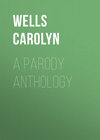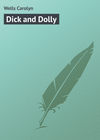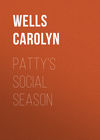Читать книгу: «A Parody Anthology», страница 12
Шрифт:
QUAERITUR
DAWN that disheartens the desolate dunes,
Dulness of day as it bursts on the beach,
Sea-wind that shrillest the thinnest of tunes,
What is the wisdom thy wailings would teach?
Far, far away, down the foam-frescoed reach,
Where ravening rocks cleave the crest of the seas,
Sigheth the sound of thy sonorous speech,
As gray gull and guillemot gather their fees;
Taking toll of the beasts that are bred in the seas.
Foam-flakes fly farther than faint eyes can follow —
Drop down the desolate dunes and are done;
Fleeter than foam-flowers flitteth the Swallow,
Sheer for the sweets of the South and the Sun.
What is thy tale? O thou treacherous Swallow!
Sing me thy secret, Beloved of the Skies,
That I may gather my garments and follow —
Flee on the path of thy pinions and rise
Where strong storms cease and the weary wind dies.
Lo! I am bound with the chains of my sorrow;
Swallow, swift Swallow, ah, wait for a while!
Stay but a moment – it may be to-morrow
Chains shall be severed and sad souls shall smile!
Only a moment – a mere minute's measure —
How shall it hurt such a swift one as thou?
Pitiless Swallow, full flushed for thy pleasure,
Canst thou not even one instant allow
To weak-winged wanderers? Wait for me now.
Rudyard Kipling.
A MELTON MOWBRAY PORK-PIE
STRANGE pie that is almost a passion,
O passion immoral for pie!
Unknown are the ways that they fashion,
Unknown and unseen of the eye.
The pie that is marbled and mottled,
The pie that digests with a sigh:
For all is not Bass that is bottled,
And all is not pork that is pie.
Richard Le Gallienne.
FOAM AND FANGS
O NYMPH with the nicest of noses;
And finest and fairest of forms;
Lips ruddy and ripe as the roses
That sway and that surge in the storms;
O buoyant and blooming Bacchante,
Of fairer than feminine face,
Rush, raging as demon of Dante —
To this, my embrace!
The foam and the fangs and the flowers,
The raving and ravenous rage
Of a poet as pinion'd in powers
As condor confined in a cage!
My heart in a haystack I've hidden,
As loving and longing I lie,
Kiss open thine eyelids unbidden —
I gaze and I die!
I've wander'd the wild waste of slaughter,
I've sniffed up the sepulchre's scent,
I've doated on devilry's daughter,
And murmur'd much more than I meant;
I've paused at Penelope's portal,
So strange are the sights that I've seen,
And mighty's the mind of the mortal
Who knows what I mean.
Walter Parke.
A SONG OF RENUNCIATION
IN the days of my season of salad,
When the down was as dew on my cheek,
And for French I was bred on the ballad,
For Greek on the writers of Greek, —
Then I sang of the rose that is ruddy,
Of "pleasure that winces and stings,"
Of white women, and wine that is bloody,
And similar things.
Of Delight that is dear as Desi-er,
And Desire that is dear as Delight;
Of the fangs of the flame that is fi-er,
Of the bruises of kisses that bite;
Of embraces that clasp and that sever,
Of blushes that flutter and flee
Round the limbs of Dolores, whoever
Dolores may be.
I sang of false faith that is fleeting
As froth of the swallowing seas,
Time's curse that is fatal as Keating
Is fatal to amorous fleas;
Of the wanness of woe that is whelp of
The lust that is blind as a bat —
By the help of my Muse and the help of
The relative That.
Panatheist, bruiser and breaker
Of kings and the creatures of kings,
I shouted on Freedom to shake her
Feet loose of the fetter that clings;
Far rolling my ravenous red eye,
And lifting a mutinous lid,
To all monarchs and matrons I said I
Would shock them – and did.
Thee I sang, and thy loves, O Thalassian,
O "noble and nude and antique!"
Unashamed in the "fearless old fashion,"
Ere washing was done by the week;
When the "roses and rapture" that girt you
Were visions of delicate vice,
And the "lilies and languors of virtue"
Not nearly so nice.
O delights of the time of my teething,
Felise, Fragoletta, Yolande!
Foam-yeast of a youth in its seething
On blasted and blithering sand!
Snake-crowned on your tresses and belted
With blossoms that coil and decay,
Ye are gone; ye are lost; ye are melted
Like ices in May.
Hushed now is the bibulous bubble
Of "lithe and lascivious" throats;
Long stript and extinct is the stubble
Of hoary and harvested oats;
From the sweets that are sour as the sorrel's
The bees have abortively swarmed;
And Algernon's earlier morals
Are fairly reformed.
I have written a loyal Armada,
And posed in a Jubilee pose;
I have babbled of babies and played a
New tune on the turn of their toes;
Washed white from the stain of Astarte,
My books any virgin may buy;
And I hear I am praised by a party
Called Something Mackay!
When erased are the records, and rotten
The meshes of memory's net;
When the grace that forgives has forgotten
The things that are good to forget;
When the trill of my juvenile trumpet
Is dead and its echoes are dead;
Then the laurel shall lie on the crumpet
And crown of my head!
Owen Seaman.
NEPHELIDIA
FROM the depth of the dreamy decline of the dawn through a notable nimbus of nebulous moonshine,
Pallid and pink as the palm of the flag-flower that flickers with fear of the flies as they float,
Are they looks of our lovers that lustrously lean from a marvel of mystic miraculous moonshine,
These that we feel in the blood of our blushes that thicken and threaten with throbs through the throat?
Thicken and thrill as a theatre thronged at appeal of an actor's appalled agitation,
Fainter with fear of the fires of the future than pale with the promise of pride in the past;
Flushed with the famishing fulness of fever that reddens with radiance of rathe recreation,
Gaunt as the ghastliest of glimpses that gleam through the gloom of the gloaming when ghosts go aghast?
Nay, for the nick of the tick of the time is a tremulous touch on the temples of terror,
Strained as the sinews yet strenuous with strife of the dead who is dumb as the dust-heaps of death;
Surely no soul is it, sweet as the spasm of erotic emotional exquisite error,
Bathed in the balms of beatified bliss, beatific itself by beatitude's breath.
Surely no spirit or sense of a soul that was soft to the spirit and soul of our senses
Sweetens the stress of surprising suspicion that sobs in the semblance and sound of a sigh;
Only this oracle opens Olympian, in mystical moods and triangular tenses, —
"Life is the lust of a lamp for the light that is dark till the dawn of the day when we die."
Mild is the mirk and monotonous music of memory, melodiously mute as it may be,
While the hope in the heart of a hero is bruised by the breach of men's rapiers, resigned to the rod;
Made meek as a mother whose bosom-beats bound with the bliss-bringing bulk of a balm-breathing baby,
As they grope through the grave-yard of creeds, under skies growing green at a groan for the grimness of God.
Blank is the book of his bounty beholden of old, and its binding is blacker than bluer:
Out of blue into black is the scheme of the skies, and their dews are the wine of the bloodshed of things;
Till the darkling desire of delight shall be free as a fawn that is freed from the fangs that pursue her,
Till the heart-beats of hell shall be hushed by a hymn from the hunt that has harried the kennel of kings.
Algernon Charles Swinburne.
THE LAY OF MACARONI
AS a wave that steals when the winds are stormy
From creek to cove of the curving shore,
Buffeted, blown, and broken before me,
Scattered and spread to its sunlit core:
As a dove that dips in the dark of maples
To sip the sweetness of shelter and shade,
I kneel in thy nimbus, O noon of Naples,
I bathe in thy beauty, by thee embayed.
What is it ails me that I should sing of her?
The queen of the flashes and flames that were!
Yea, I have felt the shuddering sting of her,
The flower-sweet throat and the hands of her!
I have swayed and sung to the sound of her psalters,
I have danced her dances of dizzy delight,
I have hallowed mine hair to the horns of her altars,
Between the nightingale's song and the night!
What is it, Queen, that now I should do for thee?
What is it now I should ask at thine hands?
Blow of the trumpets thine children once blew for thee?
Break from thine feet and thine bosom the bands?
Nay, as sweet as the songs of Leone Leoni,
And gay as her garments of gem-sprinkled gold,
She gives me mellifluous, mild macaroni,
The choice of her children when cheeses are old!
And over me hover, as if by the wings of it,
Frayed in the furnace by flame that is fleet,
The curious coils and the strenuous strings of it,
Dropping, diminishing down, as I eat;
Lo! and the beautiful Queen, as she brings of it,
Lifts me the links of the limitless chain,
Bidding mine mouth chant the splendidest things of it,
Out of the wealth of my wonderful brain!
Behold! I have done it: my stomach is smitten
With sweets of the surfeit her hands have unrolled.
Italia, mine cheeks with thine kisses are bitten,
I am broken with beauty, stabbed, slaughtered, and sold!
No man of thy millions is more macaronied,
Save mighty Mazzini, than musical Me;
The souls of the Ages shall stand as astonied,
And faint in the flame I am fanning for thee!
Bayard Taylor.
AFTER BRET HARTE
THE HEATHEN PASS-EE
By Bred Hard
WHICH I wish to remark,
And my language is plain,
That for plots that are dark
And not always in vain
The heathen Pass-ee is peculiar,
And the same I would rise to explain.
I would also premise
That the term of Pass-ee
Most fitly applies,
As you probably see,
To one whose vocation is passing
The ordinary B. A. degree.
Tom Crib was his name,
And I shall not deny
In regard to the same
What that name might imply;
But his face it was trustful and childlike,
And he had a most innocent eye.
Upon April the First
The Little-Go fell,
And that was the worst
Of the gentleman's sell,
For he fooled the Examining Body
In a way I'm reluctant to tell.
The candidates came,
And Tom Crib soon appeared;
It was Euclid. The same
Was "the subject he feared;"
But he smiled as he sat by the table,
With a smile that was wary and weird.
Yet he did what he could,
And the papers he showed
Were remarkably good,
And his countenance glowed
With pride when I met him soon after
As he walked down the Trumpington Road.
We did not find him out,
Which I bitterly grieve,
For I've not the least doubt
That he'd placed up his sleeve
Mr. Todhunter's excellent Euclid,
The same with intent to deceive.
But I shall not forget
How the next day at two
A stiff paper was set
By Examiner U.,
On Euripides' tragedy, Bacchae,
A subject Tom partially knew.
But the knowledge displayed
By that heathen Pass-ee,
And the answers he made,
Were quite frightful to see,
For he rapidly floored the whole paper
By about twenty minutes to three.
Then I looked up at U.,
And he gazed upon me;
I observed "This won't do;"
He replied, "Goodness me;
We are fooled by this artless young person,"
And he sent for that heathen Pass-ee.
The scene that ensued
Was disgraceful to view,
For the floor it was strewed
With a tolerable few
Of the "tips" that Tom Crib had been hiding
For the subject he "partially knew."
On the cuff of his shirt
He had managed to get
What we hoped had been dirt,
But which proved, I regret,
To be notes on the rise of the Drama,
A question invariably set.
In his various coats
We proceeded to seek,
Where we found sundry notes
And – with sorrow I speak speak —
One of Bohn's publications, so useful
To the student in Latin or Greek.
In the crown of his cap
Were the Furies and Fates,
And a delicate map
Of the Dorian States;
And we found in his palms, which were hollow,
What are frequent in palms, – that is dates.
Which I wish to remark,
And my language is plain,
That for plots that are dark
And not always in vain
The heathen Pass-ee is peculiar,
Which the same I am free to maintain.
A. C. Hilton.
DE TEA FABULA
Plain Language from Truthful James
DO I sleep? Do I dream?
Am I hoaxed by a scout?
Are things what they seem,
Or is Sophists about?
Is our το τι ηυ ειναι a failure, or is Robert Browning played
out?
Which expressions like these
May be fairly applied
By a party who sees
A Society skied
Upon tea that the Warden of Keble had biled with legitimate
pride.
'Twas November the third,
And I says to Bill Nye,
"Which it's true what I've heard:
If you're, so to speak, fly,
There's a chance of some tea and cheap culture, the sort recommended as High."
Which I mentioned its name,
And he ups and remarks:
"If dress-coats is the game
And pow-wow in the Parks,
Then I'm nuts on Sordello and Hohenstiel-Schwangau and
similar Snarks."
Now the pride of Bill Nye
Cannot well be express'd;
For he wore a white tie
And a cut-away vest:
Says I, "Solomon's lilies ain't in it, and they was reputed well
dress'd."
But not far did we wend,
When we saw Pippa pass
On the arm of a friend
– Dr. Furnivall 'twas,
And he wore in his hat two half-tickets for London, return,
second-class.
"Well," I thought, "this is odd."
But we came pretty quick
To a sort of a quad
That was all of red brick,
And I says to the porter, – "R. Browning: free passes; and
kindly look slick."
But says he, dripping tears
In his check handkerchief,
"That symposium's career's
Been regrettably brief,
For it went all its pile upon crumpets and busted on
gunpowder leaf!"
Then we tucked up the sleeves
Of our shirts (that were biled),
Which the reader perceives
That our feelings were riled,
And we went for that man till his mother had doubted the
traits of her child.
Which emotions like these
Must be freely indulged
By a party who sees
A Society bulged
On a reef the existence of which its prospectus had never
divulged.
But I ask, – Do I dream?
Has it gone up the spout?
Are things what they seem,
Or is Sophists about?
Is our το τι ηυ ειναι a failure, or is Robert Browning played
out?
A. T. Quiller-Couch.
AFTER AUSTIN DOBSON
THE PRODIGALS
(Dedicated to Mr. Chaplin, M.P., and Mr. Richard Power, M.P., and 223 who followed him)
MINISTERS! you, most serious,
Critics and statesmen of all degrees,
Hearken awhile to the motion of us —
Senators keen for the Epsom breeze!
Nothing we ask of poets or fees;
Worry us not with objections, pray!
Lo, for the speaker's wig we seize —
Give us, ah! give us the Derby Day.
Scots most prudent, penurious!
Irishmen busy as bumblebees!
Hearken awhile to the motion of us —
Senators keen for the Epsom breeze!
For Sir Joseph's sake, and his owner's, please!
(Solomon raced like fun, they say.)
Lo, for we beg on our bended knees —
Give us, ah! give us the Derby Day.
Campbell – Asheton be generous!
(But they voted such things were not the cheese.)
Sullivan, hear us, magnanimous!
(But Sullivan thought with their enemies.)
And shortly they got both of help and ease,
For a mad majority crowded to say,
"Debate we've drunk to the dregs and lees:
Give us, ah! give us the Derby Day."
ENVOI:
Prince, most just was the motion of these,
And many were seen by the dusty way,
Shouting glad to the Epsom breeze
Give us, ah! give us the Derby Day.
Anonymous.
AFTER ANDREW LANG
BO-PEEP
UNHAPPY is Bo-Peep,
Her tears profusely flow,
Because her precious sheep
Have wandered to and fro,
Have chosen far to go,
For "pastures new" inclined,
(See Lycidas) – and lo!
Their tails are still behind!
How catch them while asleep?
(I think Gaboriau
For machinations deep
Beats Conan Doyle and Co.)
But none a hint bestow
Save this, on how to find
The flocks she misses so —
"Their tails are still behind!"
This simple faith to keep
Will mitigate her woe,
She is not Joan, to leap
To arms against the foe
Or conjugate τὑρτω;
Nay, peacefully resigned
She waits, till time shall show
Their tails are still behind!
Bo-Peep, rejoice! Although
Your sheep appear unkind,
Rejoice at last to know
Their tails are still behind!
Anthony C. Deane.
AFTER W. E. HENLEY
IMITATION
CALM and implacable,
Eying disdainfully the world beneath,
Sat Humpty-Dumpty on his mural eminence
In solemn state:
And I relate his story
In verse unfettered by the bothering restrictions of rhyme or
metre,
In verse (or "rhythm," as I prefer to call it)
Which, consequently, is far from difficult to write.
He sat. And at his feet
The world passed on – the surging crowd
Of men and women, passionate, turgid, dense,
Keenly alert, lethargic, or obese.
(Those two lines scan!)
Among the rest
He noted Jones; Jones with his Roman nose,
His eyebrows – the left one streaked with a dash of gray —
And yellow boots.
Not that Jones
Has anything in particular to do with the story;
But a descriptive phrase
Like the above shows that the writer is
A Master of Realism.
Let us proceed. Suddenly from his seat
Did Humpty-Dumpty slip. Vainly he clutched
The impalpable air. Down and down,
Right to the foot of the wall,
Right on to the horribly hard pavement that ran beneath it,
Humpty-Dumpty, the unfortunate Humpty-Dumpty,
Fell.
And him, alas! no equine agency,
Him no power of regal battalions —
Resourceful, eager, strenuous —
Could ever restore to the lofty eminence
Which once was his.
Still he lies on the very identical
Spot where he fell – lies, as I said on the ground,
Shamefully and conspicuously abased!
Anthony C. Deane.
AFTER R. L. STEVENSON
BED DURING EXAMS
I USED to go to bed at night,
And only worked when day was light.
But now 'tis quite the other way,
I never get to bed till day.
I look up from my work and see
The morning light shine in on me,
And listen to the warning knell —
The tinkle of the rising bell.
And does there not seem cause to weep,
When I should like so much to sleep,
I have to sing this mournful lay,
I cannot get to bed till day?
Clara Warren Vail.
AFTER OSCAR WILDE
MORE IMPRESSIONS
(La Fuite des Oies)
TO outer senses they are geese,
Dull drowsing by a weedy pool;
But try the impression trick. Cool! Cool!
Snow-slumbering sentinels of Peace!
Deep silence on the shadowy flood,
Save rare sharp stridence (that means "quack"),
Low amber light in Ariel track
Athwart the dun (that means the mud).
And suddenly subsides the sun,
Bulks mystic, ghostly, thrid the gloom
(That means the white geese waddling home),
And darkness reigns! (See how it's done?)
Oscuro Wildgoose.
NURSERY RHYMES À LA MODE
(Our nurseries will soon be too cultured to admit the old rhymes in their Philistine and unæsthetic garb. They may be redressed somewhat on this model)
OH, but she was dark and shrill,
(Hey-de-diddle and hey-de-dee!)
The cat that (on the first April)
Played the fiddle on the lea.
Oh, and the moon was wan and bright,
(Hey-de-diddle and hey-de-dee!)
The Cow she looked nor left nor right,
But took it straight at a jump, pardie!
The hound did laugh to see this thing,
(Hey-de-diddle and hey-de-dee!)
As it was parlous wantoning,
(Ah, good my gentles, laugh not ye,)
And underneath a dreesome moon
Two lovers fled right piteouslie;
A spooney plate with a plated spoon,
(Hey-de-diddle and hey-de-dee!)
POSTSCRIPT
Then blame me not, altho' my verse
Sounds like an echo of C. S. C.
Since still they make ballads that worse and worse
Savor of diddle and hey-de-dee.
Anonymous.
A MAUDLE-IN BALLAD
(To his Lily)
MY lank limp lily, my long lithe lily,
My languid lily-love fragile and thin,
With dank leaves dangling and flower-flap chilly,
That shines like the shin of a Highland gilly!
Mottled and moist as a cold toad's skin!
Lustrous and leper-white, splendid and splay!
Art thou not Utter and wholly akin
To my own wan soul and my own wan chin,
And my own wan nose-tip, tilted to sway
The peacock's feather, sweeter than sin,
That I bought for a halfpenny yesterday?
My long lithe lily, my languid lily,
My lank limp lily-love, how shall I win —
Woo thee to wink at me? Silver lily,
How shall I sing to thee, softly or shrilly?
What shall I weave for thee – what shall I spin —
Rondel, or rondeau, or virelai?
Shall I buzz like a bee with my face thrust in
Thy choice, chaste chalice, or choose me a tin
Trumpet, or touchingly, tenderly play
On the weird bird-whistle, sweeter than sin,
That I bought for a halfpenny yesterday.
My languid lily, my lank limp lily,
My long lithe lily-love, men may grin —
Say that I'm soft and supremely silly —
What care I while you whisper stilly;
What care I while you smile? Not a pin!
While you smile, you whisper – 'Tis sweet to decay?
I have watered with chlorodine, tears of chagrin,
The churchyard mould I have planted thee in,
Upside down in an intense way,
In a rough red flower-pot, sweeter than sin,
That I bought for a halfpenny yesterday.
Punch.
QUITE THE CHEESE
(By a Wilde Æsthete)
THERE was once a maiden who loved a cheese;
Sing, hey! potatoes and paint!
She could eat a pound and a half with ease
Oh, the odorous air was faint!
What was the cheese that she loved the best?
Sing, hey, red pepper and rags!
You will find it out if you read the rest;
Oh, the horrors of frowning crags!
Came lovers to woo her from every land —
Sing, hey! fried bacon and files!
They asked for her heart, but they meant her hand,
Oh, the joy of the Happy Isles.
A haughty old Don from Oporto came;
Sing, hey! new carrots and nails!
The Duke of Gorgonzola, his famous name,
Oh, the lusciously-scented gales!
Lord Stilton belonged to a mighty line!
Sing, hey! salt herrings and stones!
He was "Blue" as chine – his taste divine!
Oh, the sweetness of dulcet tones.
Came stout Double Glo'ster – a man and wife,
Sing, hey! post pillars and pies!
And the son was Single, and fair as fate;
Oh, the purple of sunset skies!
De Camembert came from his sunny France,
Sing, hey! pork cutlets and pearls!
He would talk sweet nothings, and sing and dance,
Oh, the sighs of the soft sweet girls.
Came Gruyère so pale! a most hole-y man!
Sing, hey! red sandstone and rice!
But the world saw through him as worldings can,
Oh, the breezes from Isles of Spice.
But the maiden fair loved no cheese but one!
Sing, hey! acrostics and ale!
Save for Single Glo'ster she love had none!
Oh, the roses on fair cheeks pale!
He was fair and single – and so was she!
Sing, hey! tomatoes and tar!
And so now you know which it is to be!
Oh, the aid of a lucky star!
They toasted the couple the livelong night,
Sing, hey! cast iron and carp!
And engaged a poet this song to write.
Oh, the breathing Æolian harp!
So he wrote this ballad at vast expense!
Sing, hey! pump-handles and peas!
And, though you may think it devoid of sense,
Oh, he fancies it QUITE THE CHEESE!
H. C. Waring.
Жанры и теги
Возрастное ограничение:
12+Дата выхода на Литрес:
29 июня 2017Объем:
210 стр. 1 иллюстрацияПравообладатель:
Public Domain



















